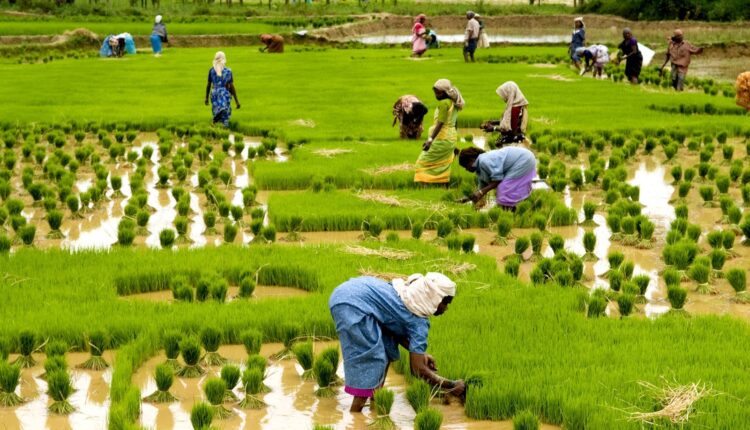Adapting rice cultivation in India to Climate Change
Farmers and scientists explore seed diversity as a resource for the future.
Agriculture in North India is the livelihood of hundreds of millions of people. Due to anticipated climate changes, including more intense heat and more extreme droughts. New crop varieties will be needed in this region to ensure food security for generations to come. This is why the International Treaty Benefit-sharing Fund has supported the project. Implemented in several states in India. Which has evaluated varieties of rice and other crops for adaptation to climate change and has ensured conservation. And safer use of this material in newly created local seed banks.
Some 25,000 farmers have been directly involved in project activities and up to 200,000 people in various villages will benefit from the increased availability and variety of seeds to choose from in the coming years. The knowledge and data collected through this project, as well as the methodologies, were developed. Could be relevant and be reused in the future by other projects and initiatives.
The Gene Campaign, which has implemented this project in collaboration with Bioversity International, has worked in four different states in North India:
Uttarakhand, Bihar, Uttar Pradesh and Himachal Pradesh. The project areas stretch from the Indo-Gangetic plains to the Himalayas and reflect a wide variety of climatic, agroecological and cultural conditions, as well as different levels of modernization of agricultural production. The project initially conducted a series of surveys in farming communities on experiences and preferences for different crops and varieties, as well as changes in crop choice in recent years, to create a baseline. strong for project activities.
Looking towards 2060
The project has used various modern technologies. Including Geographic Information Systems, GIS – to map crop diversity in genebanks with the potential for adaptation to climate change. These data were then analyzed according to climate change forecasts at the regional level for the years 2020, 2040 and 2060.
Also Read: Natural farming reduced the cost and increased profit for this farmer of Andhra Pradesh
Genetic material from Gene Campaign seed banks, as well as national collections, identified as relevant in the context of climate change, was evaluated by farmers through participatory plant variety selection programmes. Through seed fairs and exchange visits, farmers were also able to access material directly from other farmers. Methods to obtain higher yields in an environmentally sustainable manner were also validated and quite promising results were obtained.
Varieties of prepared crops
Almost 30 varieties of prepared crops with a high potential to adapt to climate changes were identified. Mainly rice, but also African millet. Community seed banks were also created in the four project areas. And a large number of people from the farming communities were trained in seed management and local bank maintenance operations. Interviews with the participants carried out at the end of the project have shown a high degree of satisfaction that farmers now have a greater diversity of seeds, but also more options to face future challenges, such as change climate.
Both farmers and researchers have learned a lot through the efforts of this project to “bridge the gap” between modern research and farming communities. New insights gained through the use of technologies such as georeferencing mapping, combined with data from climate models, will serve to broaden and enhance efforts to increase the resilience of North Indian agriculture in the coming decades.
Contact us:
If farmers want to share information or experiences related to farming with. Then they can do this by calling us on the phone number 9599273766 or by writing an email to kisanofindia.mail@gmail.com. Or by sending your recording. Through Kisan of India, we will convey your message to the people. Because we believe that if the farmers are advanced then the country is happy.

